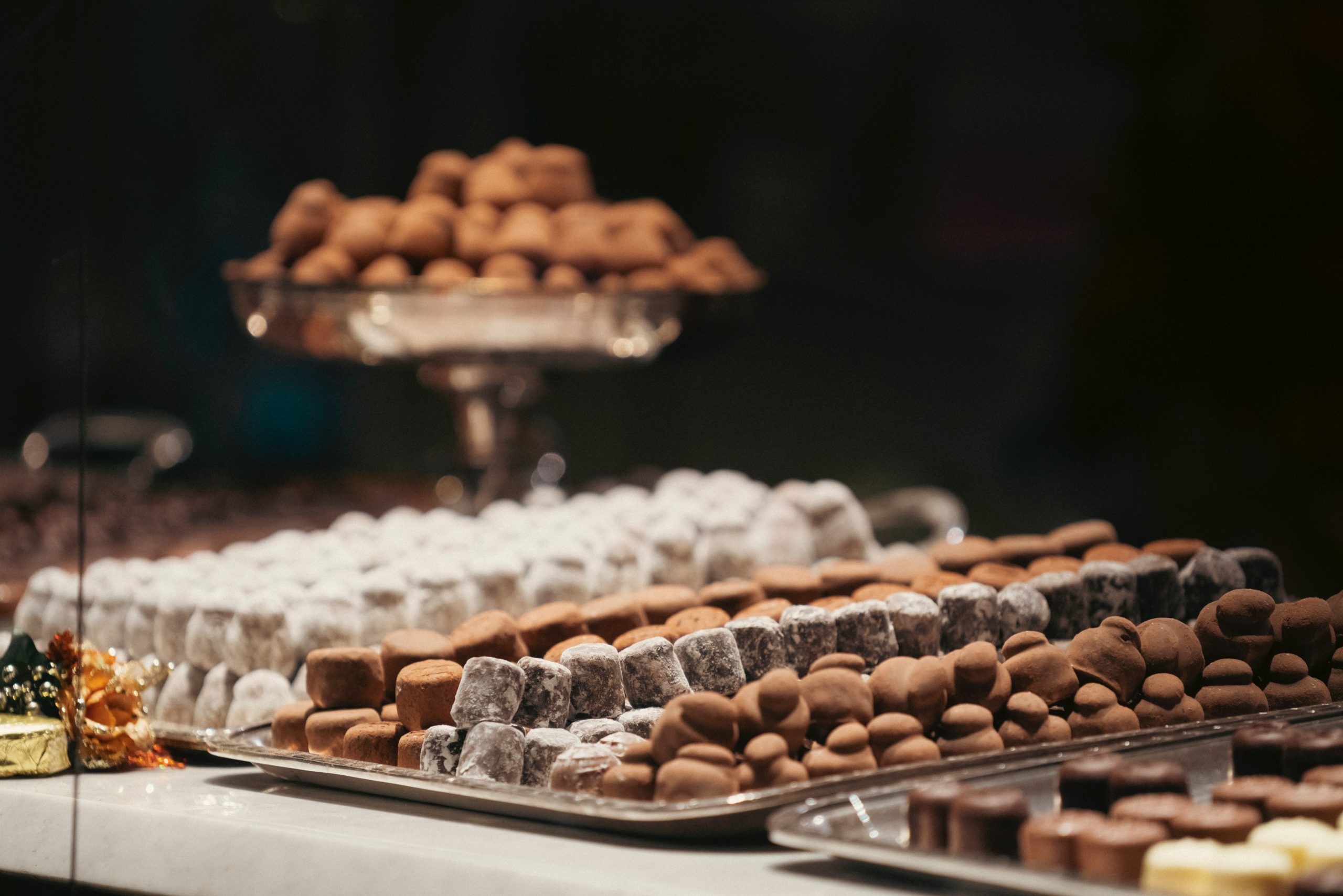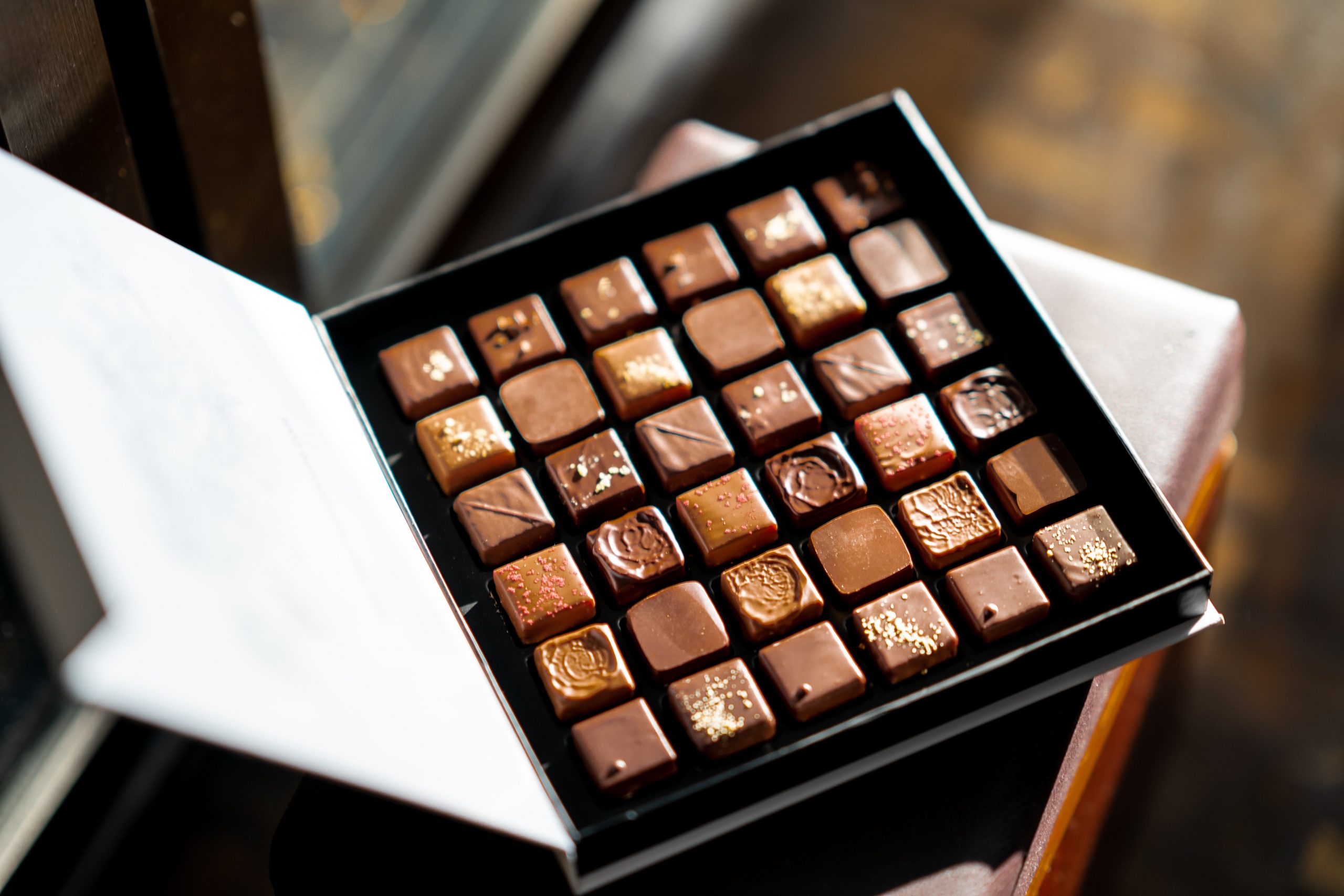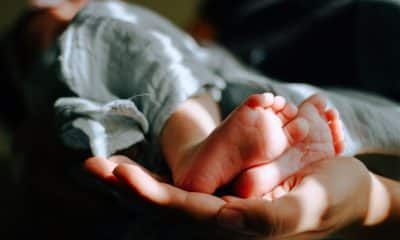Dawah and Interfaith
Niqabi In A Chocolate Shop: A Niqab Story
Published

Willy Wonka’s got nothing on me: a Canadian niqabi who has worked in multiple chocolate shops, deftly maneuvering past racist comments, silly questions, explicit Islamophobia, and managing to sweet-talk (get it???) customers into buying way more chocolate than they really need (first rule of thumb: there is no such thing as too much chocolate). More often than not, customers left with a box of treats and a basic primer on niqab.
Okay, let’s rewind a little.
I grew up on a picturesque island on the West Coast of Canada; like any self-respecting Canadian, I have a healthy relationship with Tim Hortons – but like any hijabi, quickly learned that a powdered sugar donut is a very bad idea to eat outside (the evidence lingers far too long on one’s hijab and abaya). Perhaps the sweet addiction was foreshadowing my future? Apologies, I digress. My mother was the first niqabi I ever knew, and for a long time, she was the only niqabi in our city.
Keep supporting MuslimMatters for the sake of Allah
Alhamdulillah, we're at over 850 supporters. Help us get to 900 supporters this month. All it takes is a small gift from a reader like you to keep us going, for just $2 / month.
The Prophet (SAW) has taught us the best of deeds are those that done consistently, even if they are small. Click here to support MuslimMatters with a monthly donation of $2 per month. Set it and collect blessings from Allah (swt) for the khayr you're supporting without thinking about it.
I started wearing the niqab at age 17, athough I had wanted to wear it years earlier, since I grew up seeing my mother wear it. My parents, unconvinced of my maturity (to be fair, I don’t blame them), didn’t let me start wearing it until I was safely nikah-ed (at that point, if I was old enough to be married off, I was clearly old enough to wear niqab). They wanted to ensure that I wasn’t just doing it as a phase or to be rebellious (a recurring theme in my life, I will admit).
A Beloved Good Deed
While I did my due diligence and researched the Islamic evidences for niqab, and hung out with some of my mom’s friends who also wore niqab at the time, my true spiritual relationship with niqab developed over time. To clarify, I follow the opinion that it is sunnah, not waajib; even so, it is an act of worship. As someone who isn’t spectacularly amazing at praying her sunan ar-rawaatib every single day, or fasting Mondays and Thursdays, or other exemplary worship habits, my hope is that it counts as one of the deeds praised by the Messenger of Allah 
“The most beloved of deeds to Allah are those that are most consistent, even if it is small.” [Bukhari]
While my daily worship may fluctuate, and while I may have some days where I recite a juz’ of Qur’an a day (or days when I barely do my daily wird), there is one thing that I have managed to keep consistent alhamdulillah: that when I leave my house, I wear my niqab.
In the Footsteps of the Sahabiyyaat
One of the great motivators behind my choice to wear niqab was a desire to be like the female Companions of RasulAllah 
‘Aa’ishah 
Narrated Umm Salamah, Ummul Mu’minin:
“”When the verse “That they should cast their outer garments over their persons” was revealed, the women of Ansar came out as if they had crows over their heads by wearing outer garments.”” [Sunan Abi Dawud]
The believing women of both the Ansaar and Muhajireen exemplified, to me, what it meant to be a Muslim woman who strives to please and obey Allah 


A Connection with Allah 
As I would tell my customers, niqab is much more than a piece of cloth: in many ways, it functions as a visible reminder of my connection to Allah 
Amongst other things, wearing niqab is a reminder of the commitment we uphold to Allah 
And, of course, we know that anything we do in public will reflect on our Islamic identity, and be forever ingrained in non-Muslims’ minds as an example of what Muslims are like. So yes, although everything we do should be for the sake of Allah 
Resisting a Culture of Hypersexualization
I’m sure some folks are wondering why I haven’t yet waxed lyrical about the function of niqab as a metaphorical lollipop wrapper, or phone cover, or whatever the latest stupid hijab meme tries to equate women and hijab with. Despite my absolute loathing of such poor, uncreative analogies, I do recognize the value of hijab – and especially niqab – in resisting the pervasive culture of hyersexualization of women that exists not just in the West, but around the world. Whether one lives in the East or the West, the pornification of girls and women is found everywhere: on billboards, in media, and on the streets.
Women have internalized so many harmful messages about our appearances, resulting in an epidemic of self-esteem and body image issues that can turn into full-blown diagnoses of eating disorders, severe depression and anxiety, and more. Further, there exists a bizarre expectation that complete strangers are entitled to have access to our bodies in some way, visually if not physically. Not only that, but hijab and niqab continue to be used as proxies in imperialist culture and political wars against Islam and Muslims – in Europe, in Canada, and elsewhere.
The concept of hijab (as opposed to the mere donning of a physical headscarf) establishes a clear boundary: we are believing women, whose Lord has determined who has the privilege and / or right of access to our physical appearances. We are believing women, who push back against the vicious agenda of objectification. We are believing women, and no human being has the right to demand our unveiling for their own twisted gratification or implicit imperialism.
Life is Like a Box of Chocolates… You Never Know What You’re Going to Get

I have also received sweet sentiments of support, genuine interest, and sincere curiosity about niqab and subsequently Islam, hilarious conversations with little kids (“Are you Batman?” “Yes, I am.” “THAT’S SO COOL!”), and many opportunities for positive da’wah alhamdulillah. (Also compliments on impeccable style, because who said you can’t look epic and modest? But also not in a weird co-opted-hijab-fashion-industry way.)
The secret behind handling all of these situations is to always place one’s trust in Allah 
A Sweet Schtick
My chocolate shop days are over, but if there’s anything I learned during my days of sugar-slinging, it’s that most people will be a lot nicer to you if you’re offering them chocolate alongside some slick da’wah.
Customers asked me about niqab so often that I ended up fine-tuning what I call my “niqab spiel” – a concise version of everything I have shared in this article. I would start with my sense of connection to Allah 
Most conversations about niqab are excellent opportunities to give da’wah to people who genuinely don’t know much about niqab, or Islam, and want to learn more. Sometimes they’ll start off with negative assumptions that they hold, largely due to media misinformation. Have patience, gently but firmly correct them, and don’t be afraid to stand your ground instead of getting defensive! Your confidence will change the tone of the interaction and leave them with an impression far different from their initial assumptions, inshaAllah.
I Could Give Up Niqab Chocolate, But I’m Not a Quitter
Wearing niqab in today’s global political climate is not always easy, but it is worth doing for the Sake of Allah 
For sisters who are thinking of wearing niqab, my advice is to forget about how other people will react (beyond a healthy dose of safety awareness) and focus instead on your intention for worshipping Allah 



May Allah 
Keep supporting MuslimMatters for the sake of Allah
Alhamdulillah, we're at over 850 supporters. Help us get to 900 supporters this month. All it takes is a small gift from a reader like you to keep us going, for just $2 / month.
The Prophet (SAW) has taught us the best of deeds are those that done consistently, even if they are small. Click here to support MuslimMatters with a monthly donation of $2 per month. Set it and collect blessings from Allah (swt) for the khayr you're supporting without thinking about it.
Zainab bint Younus (AnonyMouse) is a Canadian Muslim woman who writes on Muslim women's issues, gender related injustice in the Muslim community, and Muslim women in Islamic history. She holds a diploma in Islamic Studies from Arees University, a diploma in History of Female Scholarship from Cambridge Islamic College, and has spent the last fifteen years involved in grassroots da'wah. She was also an original founder of MuslimMatters.org.


Israel Seeks Escalation For Latitude – The Regional “Conflict” Widens

Post-Ramadan Reflections From A Mother Of Littles

[Podcast] Palestine in Our Hearts: Eid al-Fitr 1445 AH

Foreign Affairs Official Resigns Over Gaza Genocide

A Ramadan Quran Journal: A MuslimMatters Series – [Juz 30] Solace For The Sincere And Vulnerable

IOK Ramadan: 7 Qualities of Highly Effective Believers | Keys To The Divine Compass [Ep18]

IOK Ramadan: Choose Wisely | Keys To The Divine Compass [Ep15]

IOK Ramadan: Making Time for Allāh at Night | Keys To The Divine Compass [Ep21]

IOK Ramadan: Appreciating the Prophet ﷺ | Keys To The Divine Compass [Ep22]

IOK Ramadan: They Were Not Created Without Purpose | Keys To The Divine Compass [Ep23]

IOK Ramadan: The Importance of Spiritual Purification | Keys To The Divine Compass [Ep30]

IOK Ramadan: The Power of Prayer | Keys To The Divine Compass [Ep29]

IOK Ramadan: The Weight of the Qur’an | Keys To The Divine Compass [Ep28]

IOK Ramadan: Families of Faith | Keys To The Divine Compass [Ep27]

IOK Ramadan: Humility in Front of the Messenger | Keys To The Divine Compass [Ep26]
Trending
-
#Islam3 weeks ago
IOK Ramadan: 7 Qualities of Highly Effective Believers | Keys To The Divine Compass [Ep18]
-
#Islam3 weeks ago
IOK Ramadan: Choose Wisely | Keys To The Divine Compass [Ep15]
-
#Islam3 weeks ago
IOK Ramadan: Making Time for Allāh at Night | Keys To The Divine Compass [Ep21]
-
#Islam3 weeks ago
IOK Ramadan: Appreciating the Prophet ﷺ | Keys To The Divine Compass [Ep22]





Good Man
February 8, 2022 at 12:03 PM
WhyWhile I am against …S
February 8, 2022 at 1:25 PM
A lovely article! I enjoyed reading this, and I’d love to work in a chocolate shop!
For the comments above @GOOD MAN- it is not your place to police polygamy for others when they’re happy with it. It’s very clear that it is allowed in Islam and although we can have opinions, we really should not paint all those in polygamous marriages with the same brush.
@MAN FROM THE DARK SIDE – it’s ridiculous to accuse an individual of manipulation when you should be aware that it is expected of any sales representative to sell things. It’s selling chocolates, not drugs. Perhaps you are aware of the 70 excuses of the believer? And that one should not cast suspicion on a believer for no reason? It is not allowed in Islam to accuse individuals of nefarious means with no justification.
Good Man
February 8, 2022 at 3:09 PM
@S: My point is that we only blame men (husbands) but not women (second wives). Those who say that people are happy or that it is ‘allowed’ should come and tell me the same thing when their sister’s husband or daughter’s husband takes a second wife.
Regards.
Spirituality
February 9, 2022 at 10:13 AM
As Salamu Alaikum!
Lovely article, Sister Zaynab!
Man from the Dar Side; I don’t know there is proof that all the Sahabiyyah actually wore the niqab.
Assuming a Sahaba or a Sahabiyyah is someone who met the Prophet (s) and was a believer, the hadith below strongly suggests that this particular Sahabiyya did not wear niqab.
“Al-Fadl bin `Abbas rode behind the Prophet (ﷺ) as his companion rider on the back portion of his she camel on the Day of Nahr (slaughtering of sacrifice, 10th Dhul-Hijja) and Al-Fadl was a handsome man. The Prophet (ﷺ) stopped to give the people verdicts. In the meantime, a beautiful woman From the tribe of Khath’am came, asking the verdict of Allah’s Messenger (ﷺ). Al-Fadl started looking at her as her beauty attracted him. The Prophet (ﷺ) looked behind while Al-Fadl was looking at her; so the Prophet (ﷺ) held out his hand backwards and caught the chin of Al-Fadl and turned his face (to the owner sides in order that he should not gaze at her. She said, “O Allah’s Messenger (ﷺ)! The obligation of Performing Hajj enjoined by Allah on His worshipers, has become due (compulsory) on my father who is an old man and who cannot sit firmly on the riding animal. Will it be sufficient that I perform Hajj on his behalf?” He said, “Yes.””
Sahah al Bukhari 6228
Its not clear how Fadl (RA) could have deduced the Sahabiyya (RA)’s beauty if she was wearing niqab. And note, the Prophet (s) did not respond by telling her to wear niqab, which he would have done if niqab was wajib. He simply turned the Fadl (RA)’s head away.
And Allah knows best.
Spirituality
February 10, 2022 at 12:57 PM
Thanks Goodman for your thoughtful response. The Shayk’s argument, especially the second one, is noteworthy as the rulings regarding clothing in Hajj (ihram) are different than normal times. So if the same incident happened outside of Hajj, perhaps the Prophet (s) would have responded differently.
And Allah knows best!
MB
February 13, 2022 at 4:13 PM
Interesting article sis, good to hear from a woman who wears it because she feels its sunnah rather than wajib.
To the men in the comments, alot of you seem to spend an inordinate amount of time telling women niqab is obligatory. Maybe redirect that energy towards things that concern you as men. Please and thank you.